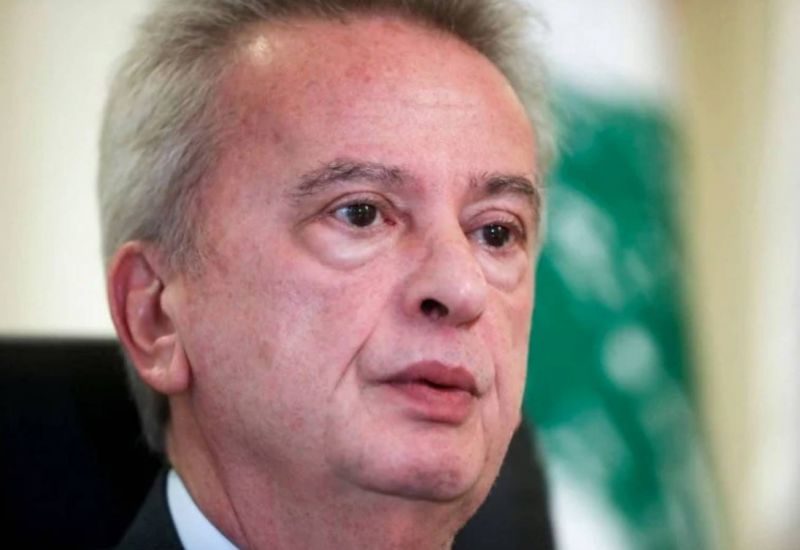
BDL Governor Riad Salameh during an interview in Beirut with Reuters on November 23, 2021. (Credit: Reuters / Mohamed Azakir)
Will State Litigation Department head Hélène Iskandar’s efforts to protect Lebanon’s interests in the case against BDL Governor Riad Salameh be successful?
Beirut’s first investigating judge, Charbel Abou Samra, is expected next week to issue the verdict on Salameh’s procedural objections filed in April against Iskandar’s complaint.
In March, Judge Iskandar joined the case against Salameh, who is suspected of “forgery and use of forgeries, money laundering, illicit enrichment, and tax evasion.”
The case had been referred to Judge Abu Samra a month prior by the Deputy Prosecutor at the Court of Appeal, Raja Hamouche, who initiated proceedings against Riad Salameh, his brother Raja Salameh and former assistant Marianne Hoyek based on the same charges.
The intervention of the Litigation Department in the legal proceedings carries high stakes: Judge Iskandar seeks to preserve the state’s rights in the case that Salameh's assets are proven to be ill-gotten.
Hoping to return assets at risk of seizure to the Lebanese state, Iskandar has requested the confiscation of real estate properties, the freezing of the bank accounts of the accused, as well as those of their spouses and children.
If the defendants’ actions are found to be criminal, the Lebanese state could receive reparations for the harm inflicted.
Youssef Khalil’s change of heart?
In response to Iskandar’s complaint, Salameh filed procedural objections. He claimed that the judges actions were illegal because she failed to seek the approval of caretaker Finance Minister Youssef Khalil, in what he deemed is a finance-related issue.
Abu Samra then communicated Salameh’s requests to Judge Hamouche, who approved them.
However, on April 16, Iskandar received a message from Khalil himself, stating that he “acknowledged” her complaint, and stressing the Litigation Department’s need to “take all measures to safeguard the state’s rights.”
Khalil also informed Iskandar that in his capacity as finance minister, it was not within his remit to approve or deny a complaint issued by the Litigation Department against the BDL governor.
Many observers believe that this development reflects Khalil’s change of heart, since he previously objected Iskandar’s request to launch the proceedings.
Iskandar communicated Khalil’s letter to Hamouche, who last week reversed his original decision that had been in Salameh’s favor. In other words, Salameh’s objections were overruled and this allowed Iskandar to take civil action against him.
Hamouche’s verdict, however, remains non-binding, pending Abu Samra’s decision.
Should Abu Samra overrule Salameh’s objection, the latter could appeal to the Indictment Chamber. But in case his objection is approved, Iskandar can appeal the decision within 24 hours.
The Indictment Chamber is not bound by a deadline to make its decision.
This article was originally published in French in L'Orient-Le Jour. Translation by Sahar Ghoussoub.